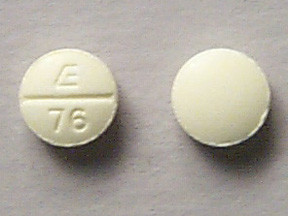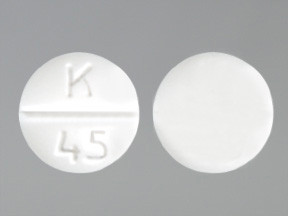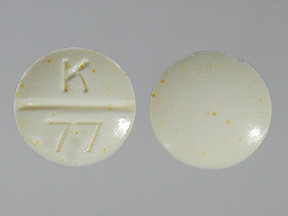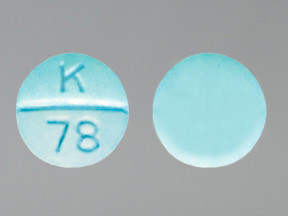PHENDIMETRAZINE - ORAL
PHONETIC PRONUNCIATION: (FEN-dye-meh-TRA-zeen)
COMMON BRAND NAME(S): Bontril PDM, Plegine
GENERIC NAME(S): phendimetrazine tartrate
Uses
USES: Phendimetrazine is used with a doctor-approved exercise, behavior change, and reduced-calorie diet program to help you lose weight. It is used by certain overweight people, such as those who are obese or have weight-related medical problems. Losing weight and keeping it off can lessen the many health risks that come with obesity, including heart disease, diabetes, high blood pressure, and a shorter life. It is not known how this medication helps people to lose weight. It may work by decreasing your appetite, increasing the amount of energy used by your body, or by affecting certain parts of the brain. This medication is an appetite suppressant and belongs to a class of drugs called sympathomimetic amines.
How to use PHENDIMETRAZINE - ORAL
HOW TO USE: Take the immediate-release form of this medication by mouth, usually 2 to 3 times a day 1 hour before meals or as directed by your doctor. Taking this medication late in the day may cause trouble sleeping (insomnia). The sustained-release form of phendimetrazine is usually taken once a day 30 - 60 minutes before the morning meal. Swallow this medication whole. Do not crush, chew, or break the capsules. Doing so can destroy the long action of the drug and may increase side effects. The dosage is based on your medical condition and response to therapy. Your doctor will adjust the dose to find the best dose for you. Use this medication regularly and exactly as prescribed in order to get the most benefit from it. To help you remember, take it at the same time(s) each day. Phendimetrazine is usually taken for only a few weeks at a time. It should not be taken with other appetite suppressants (see also Drug Interactions section). The possibility of serious side effects increases with longer use of this medication and use of this drug along with certain other diet drugs. This medication may cause withdrawal reactions, especially if it has been used regularly for a long time or in high doses. In such cases, withdrawal symptoms (such as depression, severe tiredness) may occur if you suddenly stop using this medication. To prevent withdrawal reactions, your doctor may reduce your dose gradually. Consult your doctor or pharmacist for more details, and report any withdrawal reactions right away. Though it helps many people, this medication may sometimes cause addiction. This risk may be higher if you have a substance use disorder (such as overuse of or addiction to drugs/alcohol). Do not increase your dose, take it more often, or use it for a longer time than prescribed. Properly stop the medication when so directed. This medication may stop working well after you have been taking it for a while. Talk with your doctor if this medication stops working well. Do not increase the dose unless directed by your doctor. Your doctor may direct you to stop taking this medication.
Side Effects
Precautions
Interactions
Overdose
Images

- color
- yellow
- shape
- round
- imprint
- logo and 76

- color
- yellow
- shape
- round
- imprint
- logo and 76
Reviews
Faq for PHENDIMETRAZINE - ORAL
Phendimetrazine is an oral medication used for weight loss. It belongs to a class of drugs known as sympathomimetic amines, which help suppress appetite and increase metabolism.
Phendimetrazine should be taken exactly as prescribed by your healthcare provider. Typically, it is taken once a day, 30-60 minutes before a meal. Avoid taking it late in the day as it may cause insomnia.
Common side effects of Phendimetrazine include dry mouth, increased heart rate, restlessness, nervousness, and constipation. Inform your doctor if these side effects persist or worsen.
Phendimetrazine has the potential to be habit-forming. It should only be used for a short period of time (few weeks) as part of a comprehensive weight loss program under the guidance of a healthcare professional.
Phendimetrazine should not be used if you have a history of heart disease, uncontrolled high blood pressure, hyperthyroidism, glaucoma, or a history of drug abuse. It should also be avoided during pregnancy or breastfeeding.
Phendimetrazine may interact with other medications, such as MAO inhibitors, antidepressants, antihistamines, and certain diabetes drugs. It is important to inform your doctor about all the medications you are taking to avoid any potential interactions.
If you miss a dose, take it as soon as you remember. However, if it is close to your next scheduled dose, skip the missed dose and resume your regular dosing schedule. Do not double the dose to make up for a missed one.
Phendimetrazine is usually prescribed for a few weeks to help with weight loss. Prolonged use beyond that timeframe is generally not recommended due to the risk of developing tolerance and dependence.
Phendimetrazine should only be used by individuals who are clinically overweight or obese and at risk for weight-related health problems. It is not intended for cosmetic weight loss or use by individuals looking to shed a few pounds for aesthetic reasons.
Disclaimer
IMPORTANT: HOW TO USE THIS INFORMATION: This is a summary and does NOT have all possible information about this product. This information does not assure that this product is safe, effective, or appropriate for you. This information is not individual medical advice and does not substitute for the advice of your health care professional. Always ask your health care professional for complete information about this product and your specific health needs.




No Reviews Yet